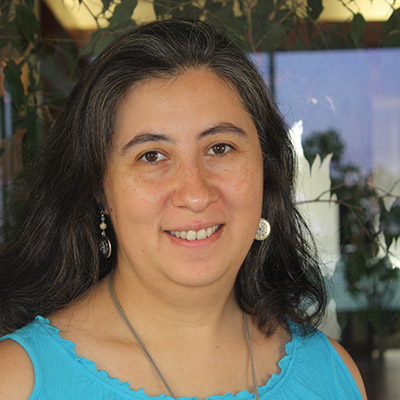
Dr Soledad Quiroz-Valenzuela – Chile
Project: Succeeding and failing in delivering scientific evidence: a close look of two cases of environmental conflicts in Chile
Chile has one of the most diverse environments in the world: from the driest desert of Atacama, to the eternal snow of Antarctica. However, our rich biodiversity is often threatened by all sorts of human activities. In the north, copper and more recently lithium mining activities have for decades, polluted its soil, air and water, creating toxic environments for the inhabitants of cities like Antofagasta. In the south, urbanization and growing population has pushed the limits of the cities like Valdivia farther into native woods and wetlands that regulate water flows and hold unique ecosystems. These developments have resulted in socio-environmental conflicts, affecting the wellbeing of people and the environment.
While similar in some aspects, the two cases of Valdivia and Antofagasta had unfolded differently. In Valdivia, decision makers developed a close relationship with local scientists and citizens’ organizations, and together they pushed a national legislation to protect urban wetlands, which is currently being discussed in the national Congress. This is a mayor accomplishment for any local issue outside the capitol. In contrast, in Antofagasta, scientist and local activist have for years warned about the noxious effects of mining activities, yet there has not been any response from the authorities. Recent scientific findings related to soil contamination by a group of local scientists are being ignored, despite of the efforts of scientists to convey their concerns over the health issues that can affect the local population.
This proposal aims to compare these two cases in order to identify, characterize and understand the mechanisms that facilitated the inclusion scientific evidence into policies of environmental management. The comparison will allow for a detailed analysis in three key issues: (1) highlight best practices, (2) identify barriers to interdisciplinary work between scientists and policy makers; and (3) better comprehend how local contexts can influence the interplay between science and decision-making. This latter point is very important when best practices are sought to be applied in different cities or countries.
This comparative case study will be conducted through document analysis and a series of interviews with relevant actors such as scientists, city’s office staff, members of the congress, journalists and others, in order to characterize the different strategies developed by groups of actors for each of the cases, the types and mechanism by which scientific evidence and other forms of knowledge and information are communicated and shared, and the mechanism for conflict resolution, coordination and cooperation that lead to policy engagement and change.
This study can have an important applicability in the global south, where scientists are scarcer, and the interaction between them and policy makers is still a work in progress, with few institutions facilitating it.
Biography:
I graduated as a Biochemist from Universidad Católica (Santiago, Chile) and later I obtained a Ph.D in Biochemistry and Molecular Biology from Michigan State University (USA). After graduation, I decided my contribution to science will come from the public policy area, thus I enrolled for a Masters in Public Policy and Management in Carnegie Mellon University (USA).
When I came back to Chile after seven years, I noticed scientists were still very isolated from the public, and more so of decision makers, unaware of the need to communicate with them. Since then, I started my own investigation to understand how the institutions related to science and technology development were working in Chile, publishing a book in 2016 with my findings. I organized a country-wide meeting of scientists in 2016 to discuss what were the main barriers to all kinds of research, and what we proposed to overcome them. The results of the meeting were used by the main government agency in the country (CONICYT) to develop a series of changes and policies.
Currently, I am member of the INGSA-LAC Steering Committee, Coordinator of the “Ciencia al Congreso” initiative, which aims to train scientists to produce documents of relevance for decision makers, and I investigate the interactions between scientists, society and institutions.

